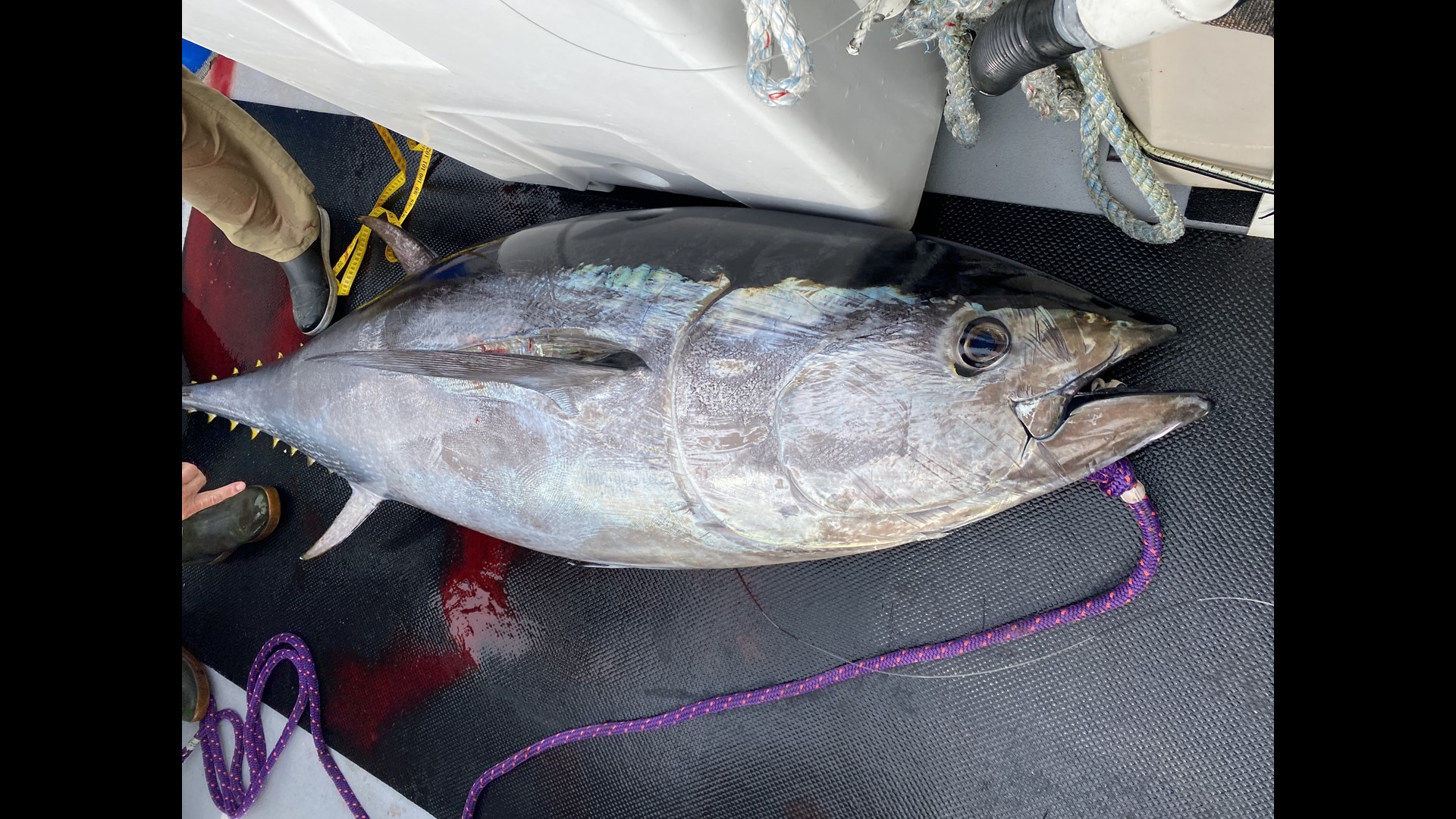PORTLAND, Maine — Pete Speeches, captain for the F/V Erin & Sarah out of Portland, started the day with his deckhand, Andrew Lebel, around 4 in the morning.
They left quickly from the harbor in Portland, anxious to join the dozens of boats floating in the water several miles out of the midcoast.
Beating out the massive container shipping boats, they stop for bait along the way.
"It's hard to shake the tuna bug. ... What's not to like about it?" Lebel said while baiting the hooks.
Testing the line from the rods and putting a large circle hook at the end, the two set out their rods.
Several hours pass by but the fishermen remain patient, knowing some boats float for days without getting a bite. They do have added pressure though, in that they have two scientists on board waiting to not only catch a tuna but put a tracking tag on it as well.
Walt Golet, with the Gulf of Maine Research Institute, has been studying bluefin tuna for years. He says working with fishermen like Speeches and Lebel allow him to understand not only the fishery but see the common interest scientists and fishermen have in protecting the species.
"If mother nature cooperates, we would be lucky enough to get one on the line," Golet said.
Ideally, the goal would be tagging a tuna to release it, then catching a tuna to take it back to harbor for the fishermen to sell, making their trip financially worth it.
Just before noon on that Thursday, the group has a fish on the line. The rod bends toward the ocean with line spooling out. The sound is loud and signals the fishermen to get a move on.
The fight lasts around half an hour and before long, a 300-pound tuna emerges from the water, thrashing around and gasping for air.

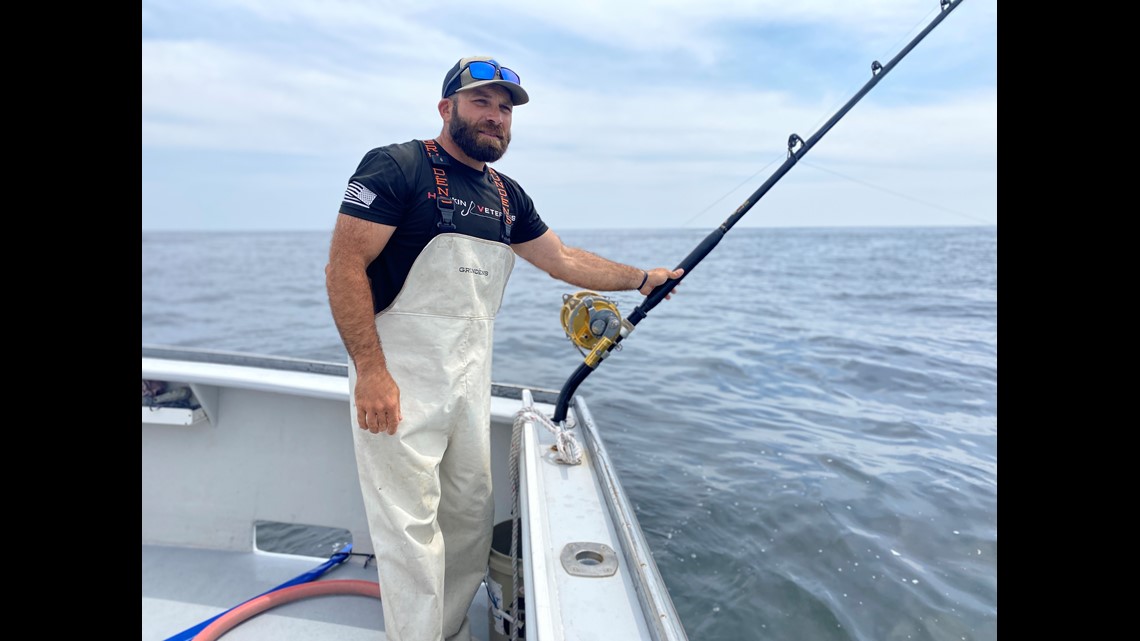
Speeches is careful in using a gaff to not injure the fish but fix the hook through the thin skin on the jaw. Him and Lebel bring the tuna into the boat and immediately cover its face with a wet towel, running fresh seawater through its gills.
While on the boat, measurements are taken. Girth, head to tail and fin size. While the fishermen open the back of the boat to release the giant, Golet grabs a spear with a tracking device attached. He sinks it under the fish's skin.
Within a minute, the ordeal is over for the fish. It's released and swam off as quickly as it came.
"That's what we came here for," Lebel said. "Nice, clean fight."
Part of the data Golet and his team hope to get, is data showing how tuna react to our changing climate.
While bluefin tuna is considered an apex predator -- capable of withstanding a 50-degree temperature range, eat a wide variety of food and travel thousands of miles around the ocean -- there are ways climate change will impact the fish.
Golet said tuna will only survive where their food is.
So while tuna can withstand our changing climate, its food cannot. Smaller fish such as herring and mackerel may move or have their numbers depleted if our temperatures shift in the Gulf of Maine.
"If you're winning, you're going to stay. But if you're losing, you're not going to stick around," Golet said. "We are not far from the Canadian border. A small shift in abundance could push the fish over the international border and out of our reach."
Golet said we won't know how severe the impact of climate change will be on tuna migration and its search for prey, and that's why they continue to tag the fish, hoping to collect decades of data from hundreds of fish to have the best sample size possible.
"It's always changing, and the only way to keep up with it is to keep continuously providing that scientific information," Golet said.
The fishermen rebait the hooks and try again. If it's another clean fight, Golet has more trackers to put on the fish.
Around 3 in the afternoon, the line starts to scream. The fishermen jump back in action and fight another large fish. The fish is similar in size to the one Golet tagged, and they are planning to tag this one as well.
As the fishermen haul the tuna into the boat, the gaff rips through the jaw of the fish, damaging it and putting its recovery in jeopardy. The team agrees its best not to tag it and instead to take it into harbor.

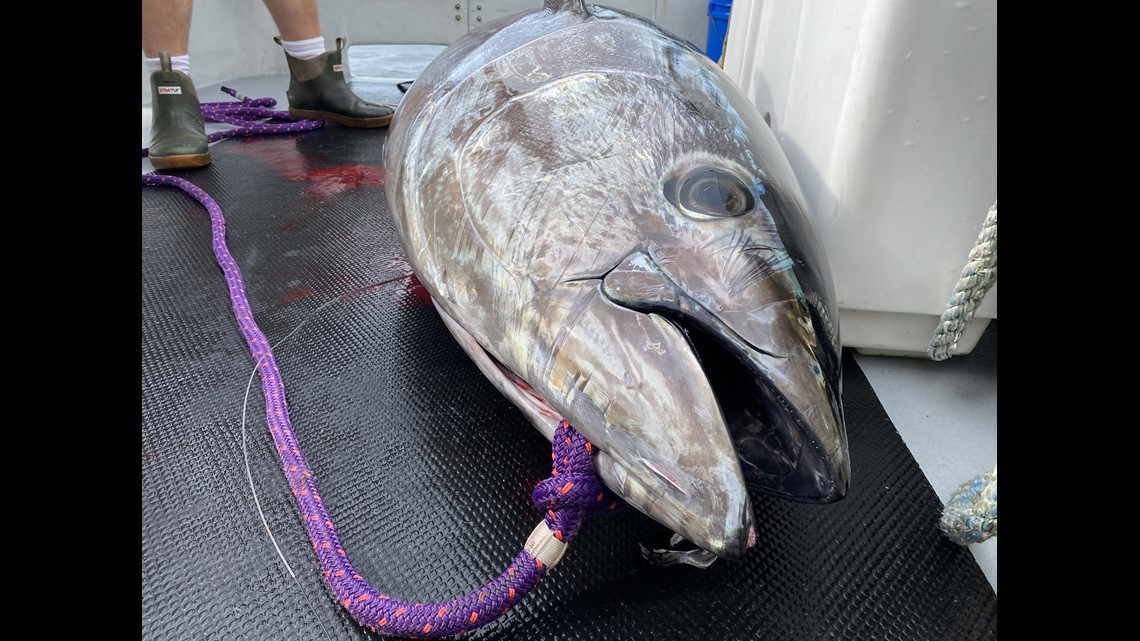

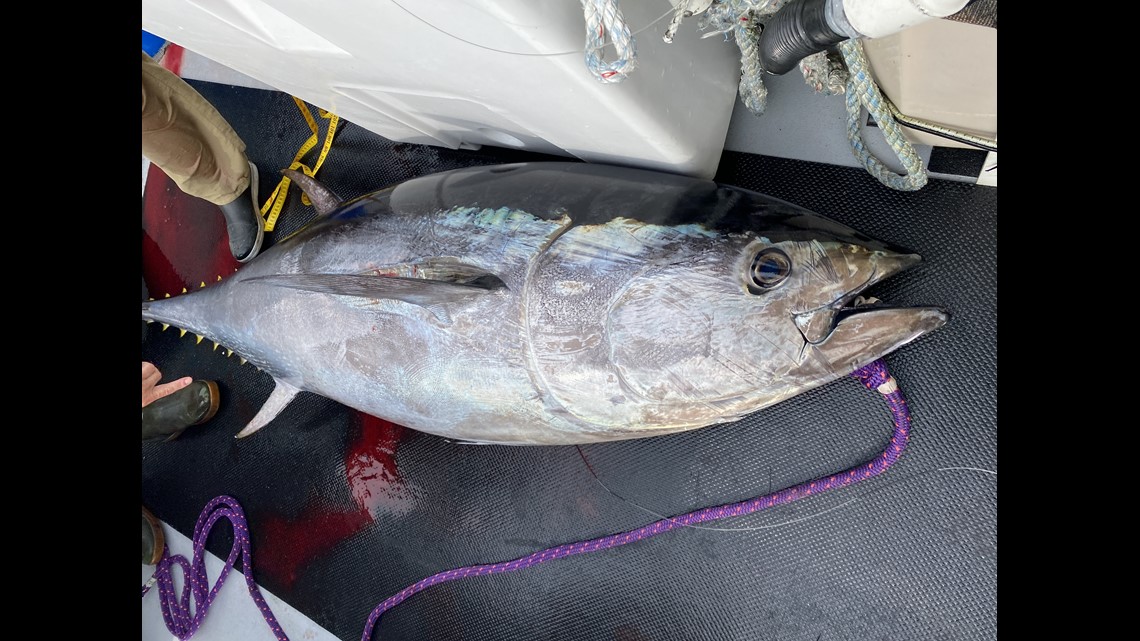
"We're taking the opportunity to harvest this fish, cut the trip a little short, and hope we can catch more another day," Speeches said.
For Speeches, it is a successful trip. He starts to dress the tuna, just as he has done for countless fish over the decades.
"I come from a long lineage of fishermen," Speeches said. "Once it gets in your blood, it's hard to leave. It's not easy to change careers."

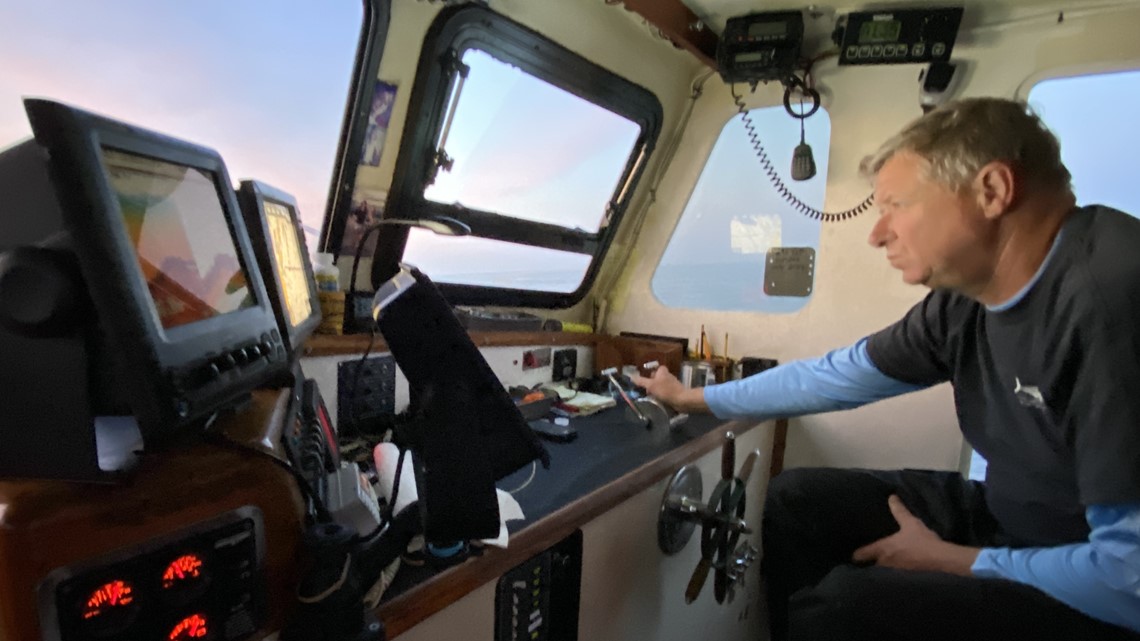
Speeches said Golet approached him about working together on research about a decade ago. He said he was willing to work with scientists as he didn't think the national data and metrics used to control the fishery weren't in line with what he was seeing on the ocean.
"I'd like to see this industry thrive if it can, even if I'm out of it; it's not about the money," Speeches said. "We have to dispel some of those rumors and have good logistics for the political arena to work with."
The team heads back into port, turning in the tuna for cash, and calling it a day. Knowing the season is ending soon, but not the discovery of an elusive giant, that is increasingly becoming important to the state's fishing economy.

